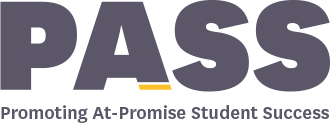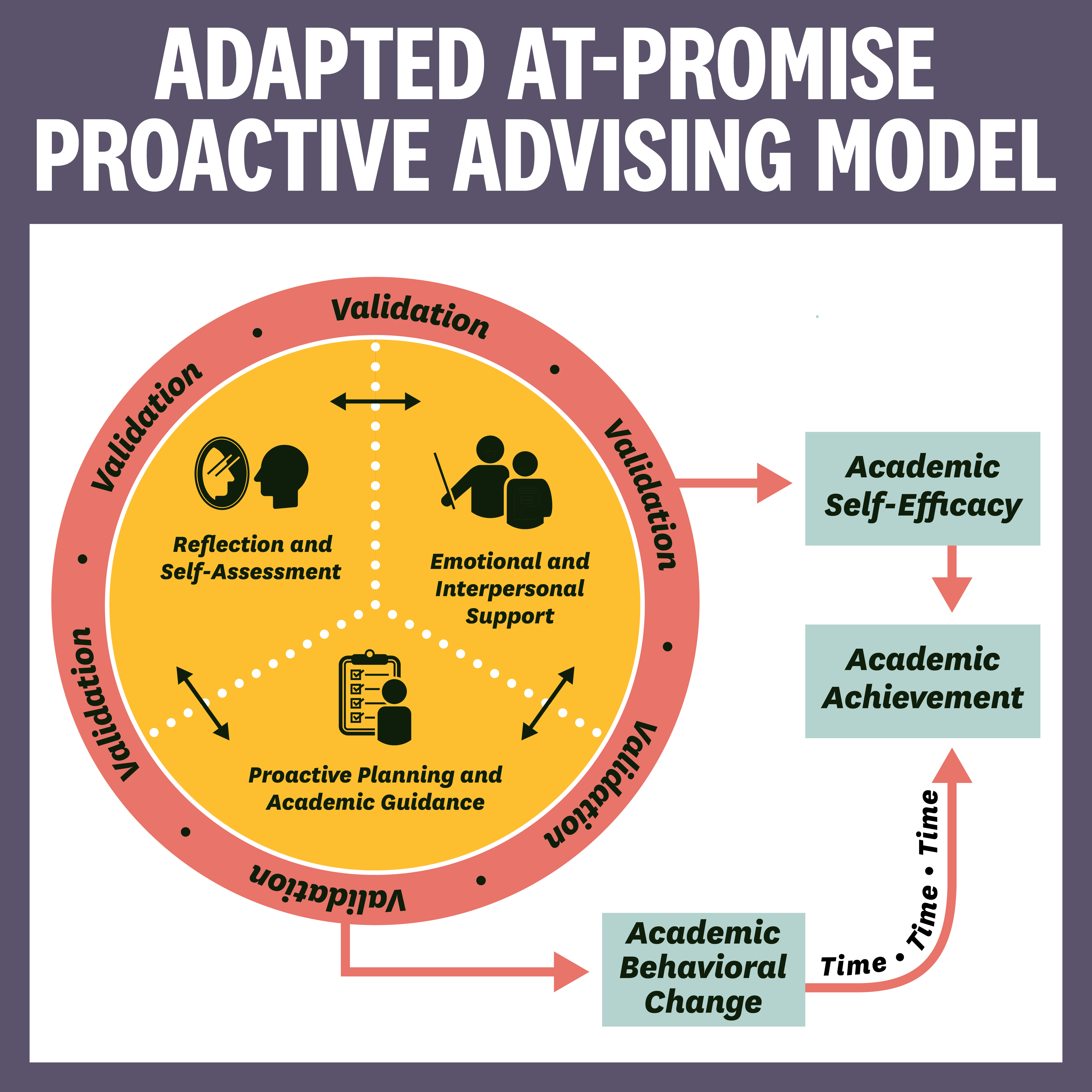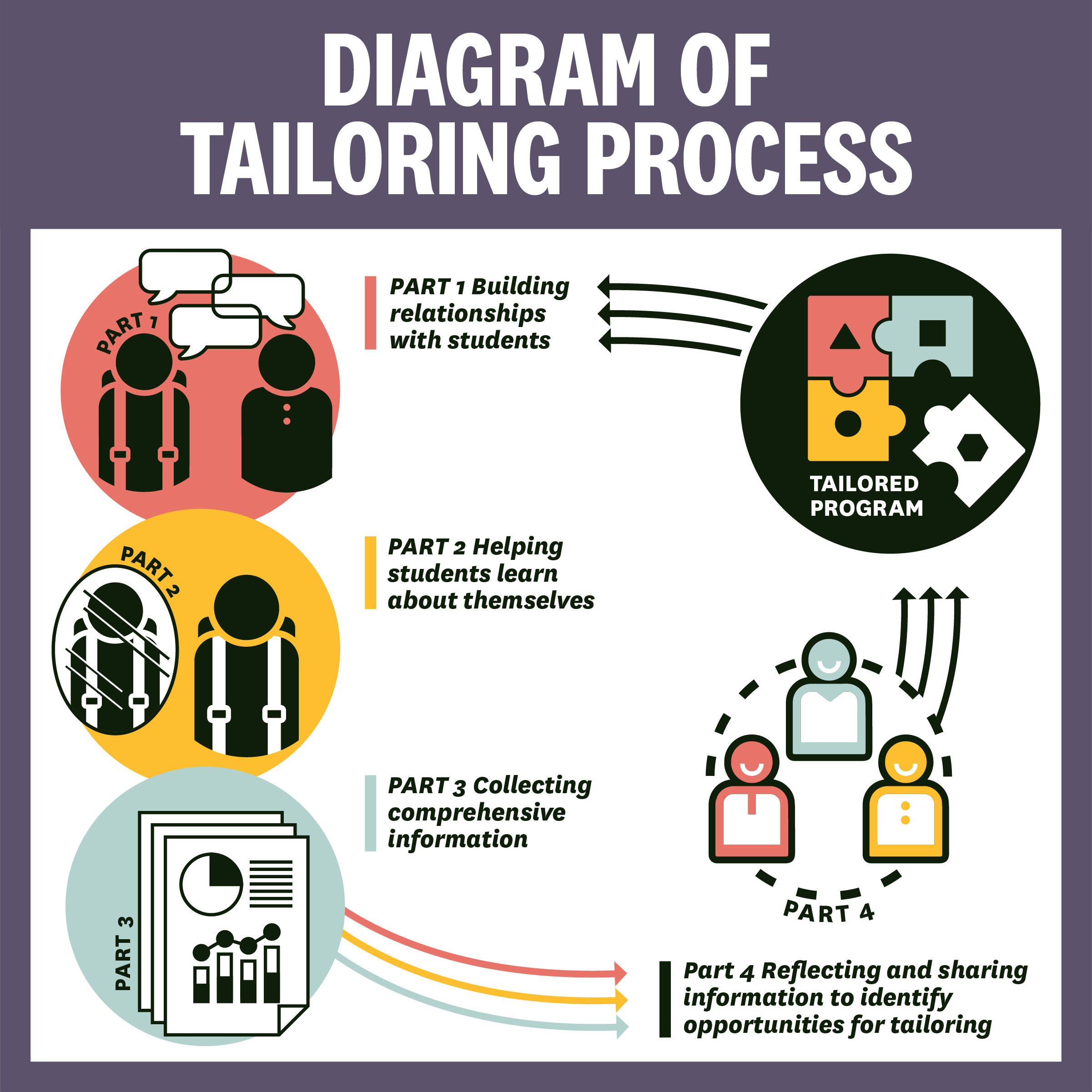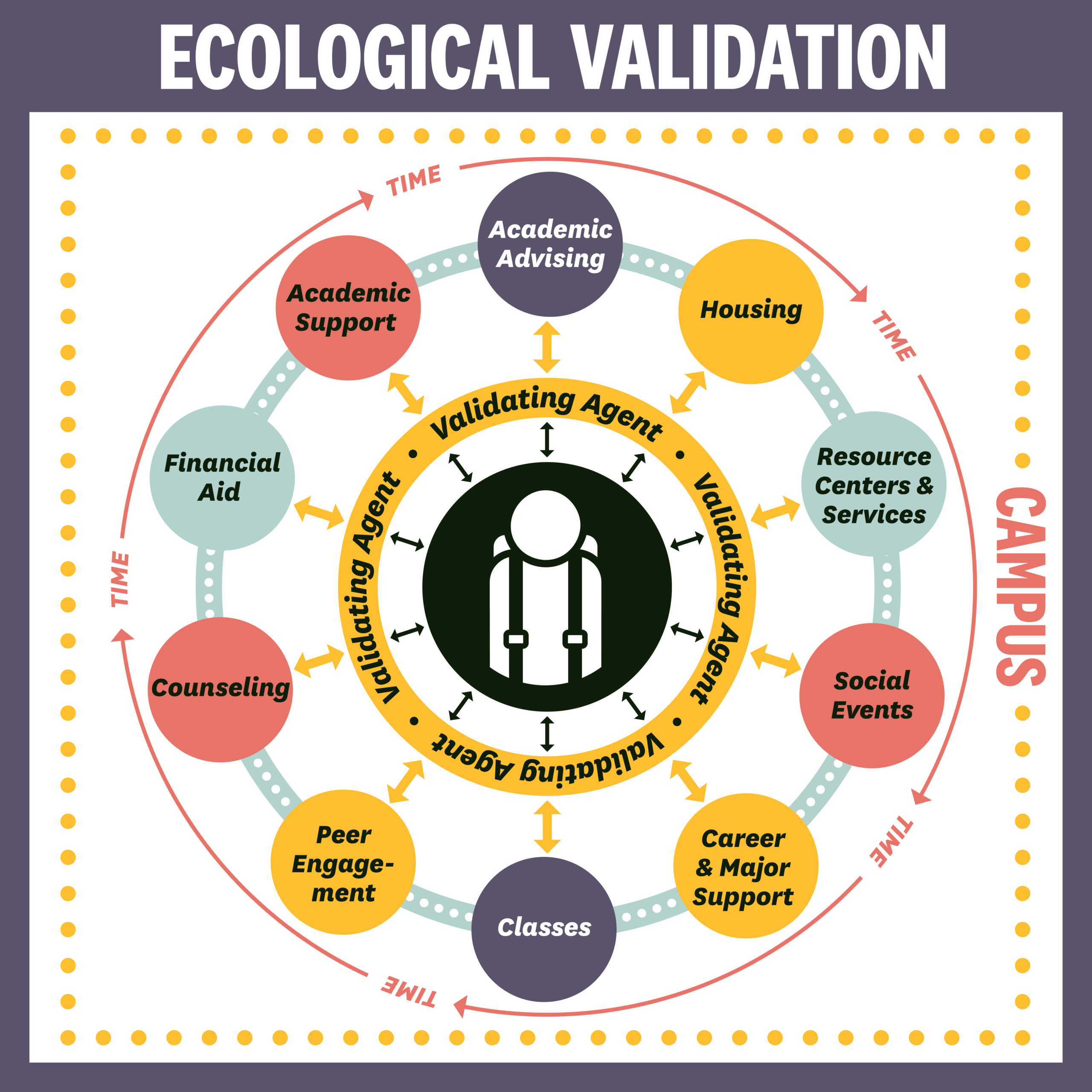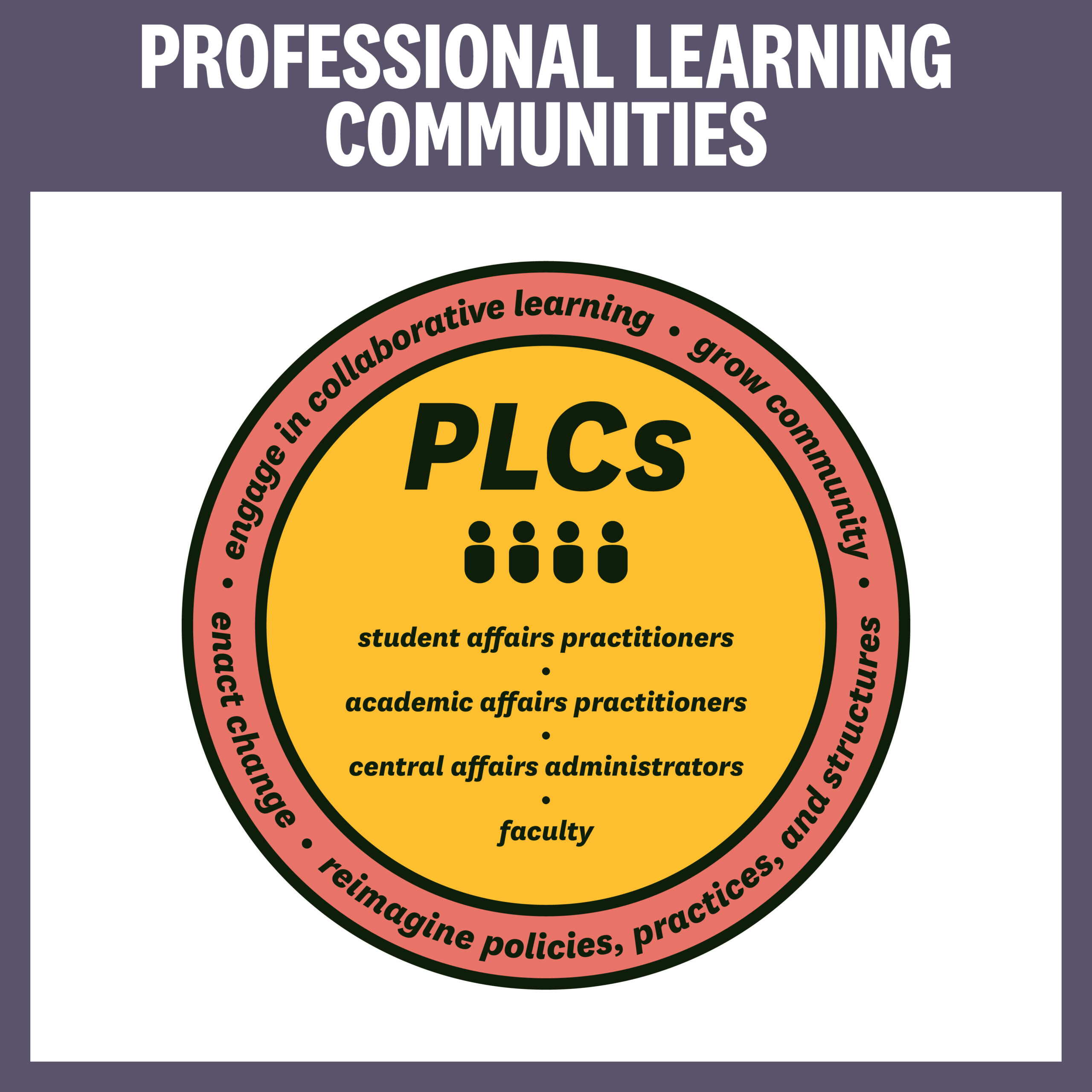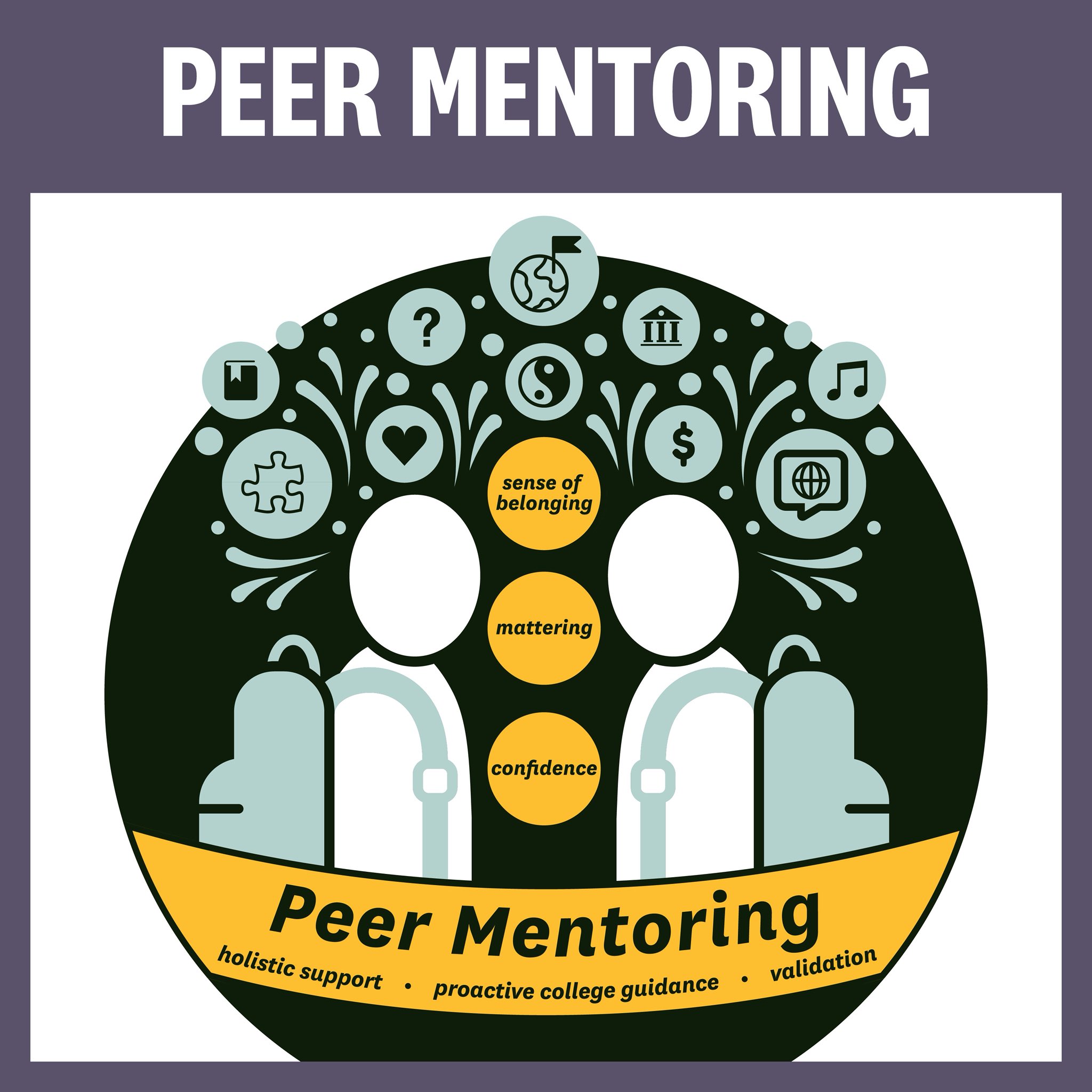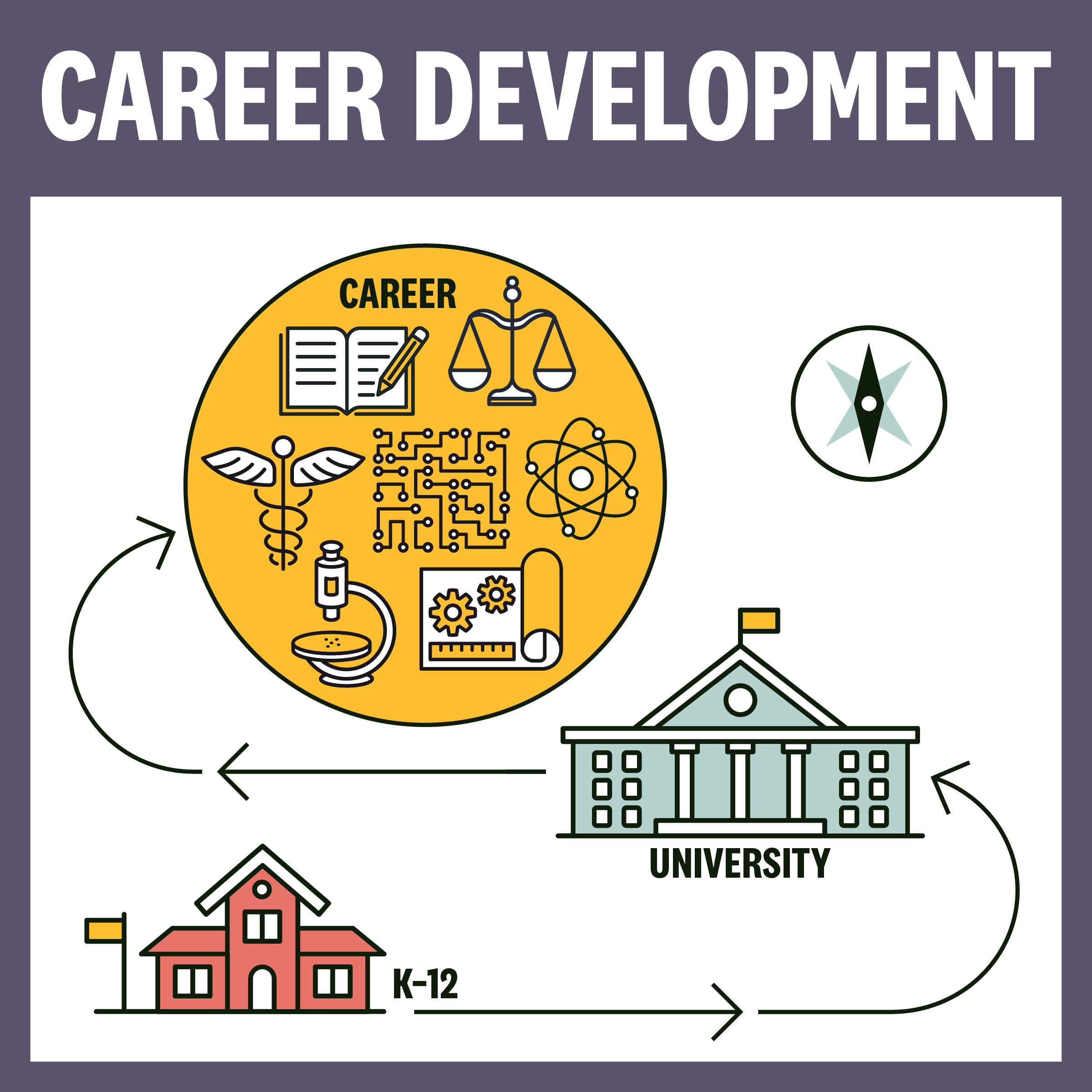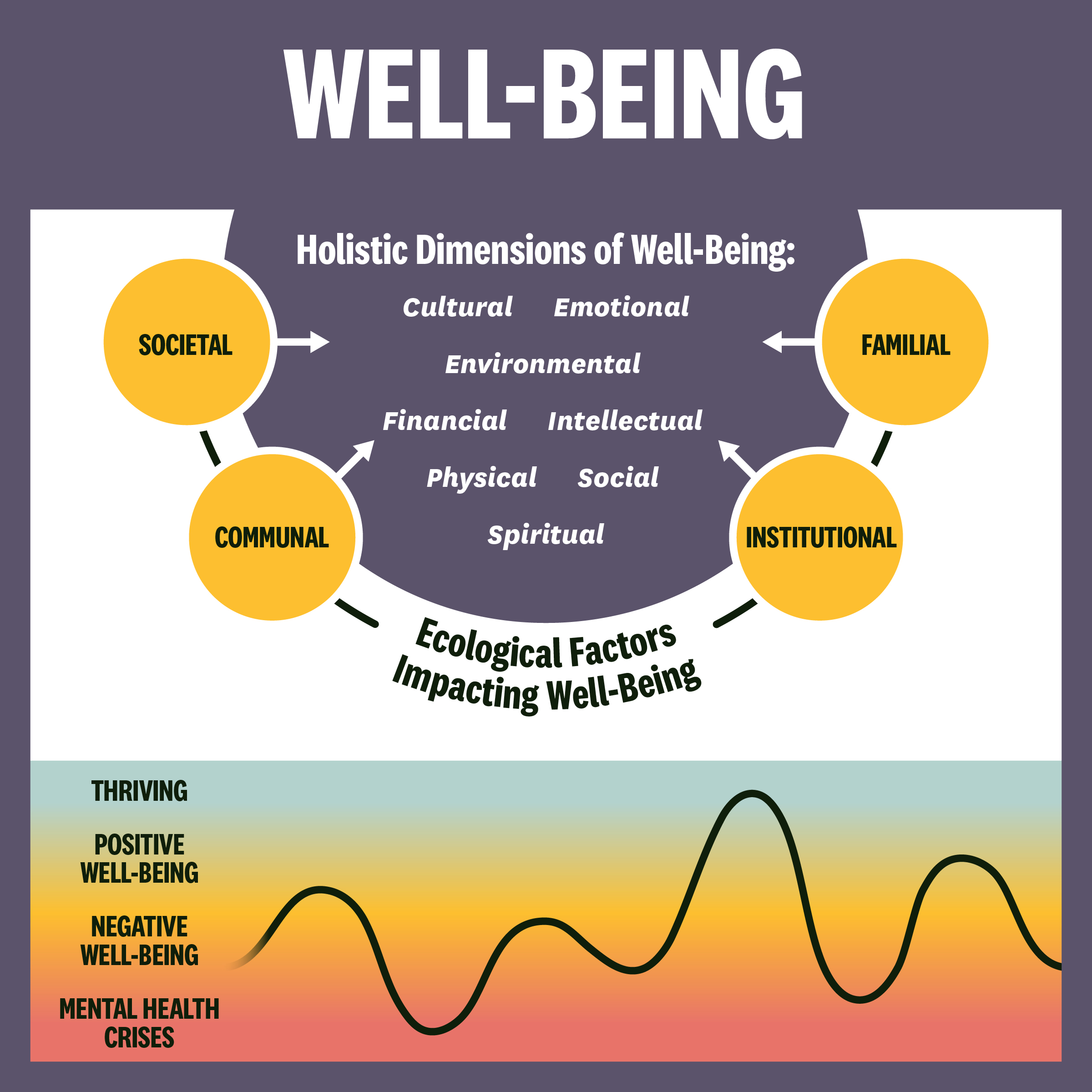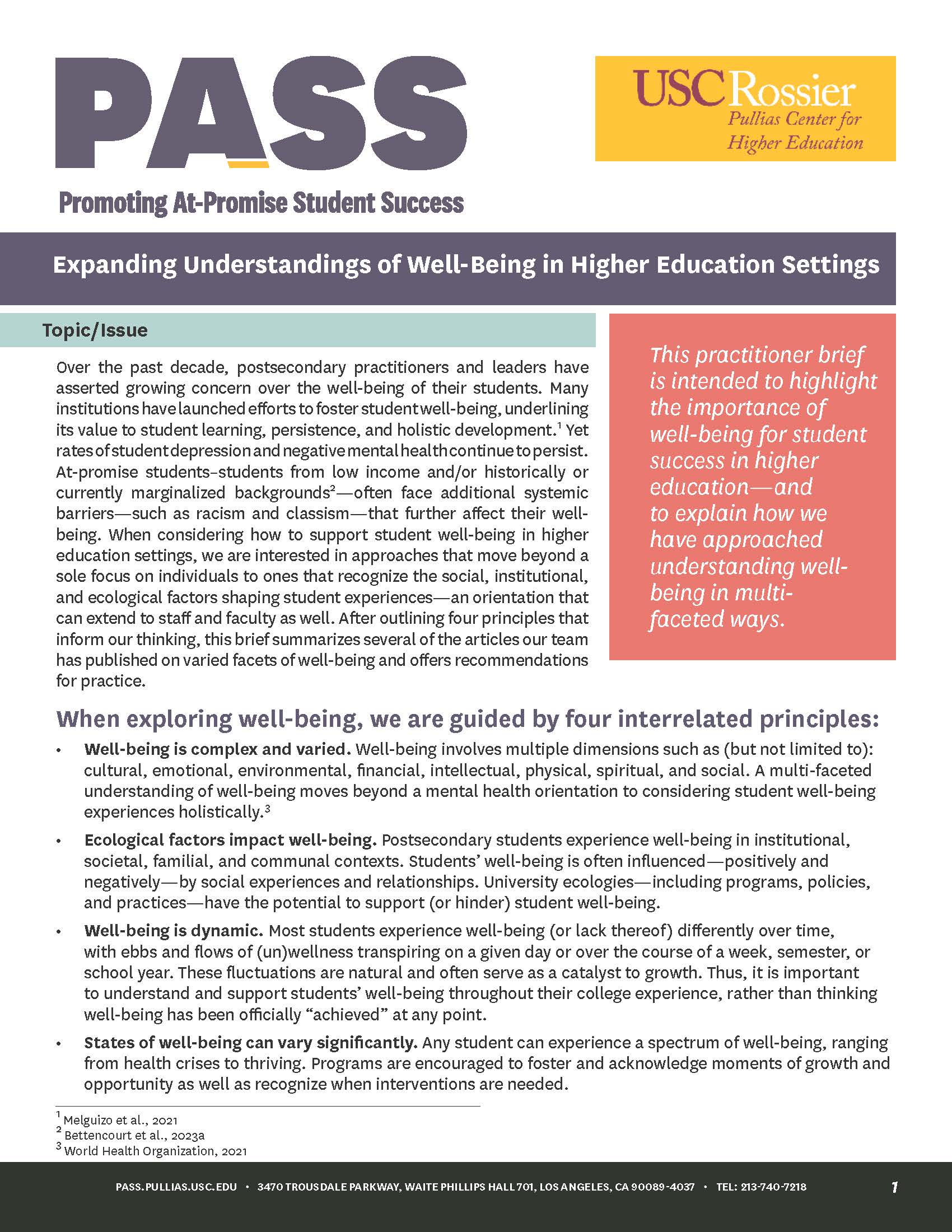
Featured Practice: Well-being
This brief aims to expand how higher education leaders, practitioners and policymakers understand and support student well-being. Moving beyond an exclusive focus on individual mental health, it emphasizes the social, institutional and ecological factors that shape students’ well-being, which has been shown to have clear implications for academic success. The brief outlines key findings and provides recommendations to foster holistic well-being for students, faculty and staff.
Policy & Practice Briefs
We have developed a number of briefs focused on issues related to the success of at-promise students in higher education. In each brief, we provide key takeaways based on the evidence from our study, make recommendations for practice, and offer questions to guide efforts on other campuses.

